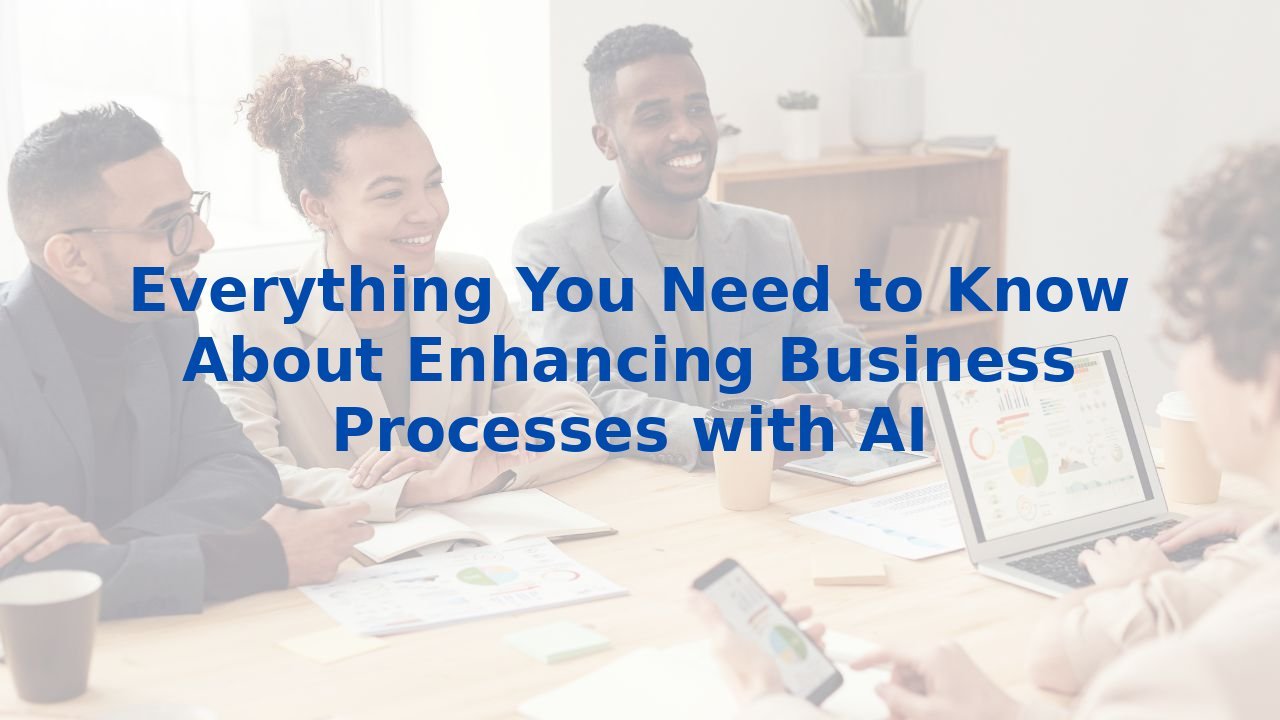Everything You Need To Know About Enhancing Business Processes with AI
Everything You Need To Know About Enhancing Business Processes with AI
In a world that demands constant innovation, organizations are revolutionizing how they operate. The integration of Artificial Intelligence (AI) into business processes isn’t just a trend; it’s a necessity for organizations aiming to thrive. With a keen ability to boost efficiency and refine decision-making, AI stands at the forefront of business evolution. Here’s a closer look at how AI can elevate various business processes and what it means for the future of work.
Understanding Business Process Management
At the heart of any successful organization lies Business Process Management (BPM). It encompasses the design, execution, and optimization of business processes. Originating in the late 1980s, BPM has developed into a vital framework for enhancing efficiency within organizations. But as the business environment shifts, so too must the approaches we use to manage processes. Enter AI—poised to redefine BPM through innovative enhancements.
How AI Enhances Business Processes
The power of AI lies in its ability to transform standard practices into streamlined operations. Here’s a closer look at some of the transformative ways AI can enhance BPM:
Process Discovery and Mapping
AI in Process Mining: AI’s process mining capabilities analyze data from diverse systems—think CRM and ERP—to unearth patterns within business processes. This allows organizations to visualize workflows, spotlight individual steps, and identity inefficiencies.
Automated Process Discovery: By examining log data, AI can automatically construct a blueprint of a company’s processes, shining a light on variations and bottlenecks that may hinder performance.
Process Automation
Automating Routine Tasks: Picture a workspace free from the shackles of mundane tasks like data entry, invoice processing, or social media scheduling. AI takes charge, allowing teams to focus on higher-value projects and minimizing human error.
Intelligent Document Processing: AI transforms the approach to handling documentation by converting both physical and digital documents into actionable data, thus enhancing efficiency and reducing redundancy in document management.
Decision Support and Optimization
Predictive Analytics: AI’s prowess in analyzing historical data allows organizations to forecast outcomes confidently. From anticipating customer behavior to identifying root causes of inefficiencies, AI turns data into actionable insight.
Real-Time Monitoring: With real-time insights, businesses can promptly recognize and address issues, maintaining optimal efficiency and seizing opportunities as they arise.
Resource Optimization
Optimizing Resource Allocation: AI uncovers the most effective allocation of resources like labor and inventory, ensuring businesses meet market demands, reduce waste, and bolster operational efficiency.
Speeding Up Planning and Research: Natural language processing (NLP) enables AI to digest extensive information, expediting research and communication, ultimately leading to informed decisions more rapidly.
Benefits of AI for Improving Efficiency
As organizations integrate AI into their business processes, they unlock a treasure trove of benefits:
- Improved Efficiency: AI identifies redundancies, automatically eliminating bottlenecks and streamlining processes.
- Fewer Errors: With AI handling routine tasks, organizations see a marked reduction in human error, enhancing overall predictive accuracy.
- Improved Consistency: Consistency in tasks is elevated with AI, leading to enhanced performance across the board.
- Less Risk: By leveraging vast datasets, AI helps identify potential risks, empowering companies to act proactively and mitigate issues before they arise.
The Role of Employee Training in AI Implementation
Yet even with the most advanced technology, the human element remains critical. To truly harness the power of AI, organizations must invest in training their employees in AI capabilities. Consider the following:
- Understanding AI Capabilities: Employees must grasp what AI can do and how to integrate it into their workflows to maximize its potential.
- Data Analysis Skills: The ability to interpret AI-derived insights is essential for informed decision-making.
- Adaptability: Encouraging employees to embrace new technologies fosters a culture of adaptability and innovation.
Conclusion
AI is reshaping the landscape of business processes, offering an array of benefits that can propel organizations toward long-term success. From automating routine tasks to optimizing decision-making, AI empowers businesses to operate at peak efficiency. However, the key to unlocking AI’s true potential lies in comprehensive training for employees, ensuring they are equipped to integrate and leverage these powerful tools. As organizations look to the future, embracing AI and fostering a culture of learning will be paramount to staying ahead in the ever-changing business arena.
For more insights on how to enhance your organization’s business processes with AI, consider exploring this AI Learning Blog or discover who we are and how we can help your team thrive.



